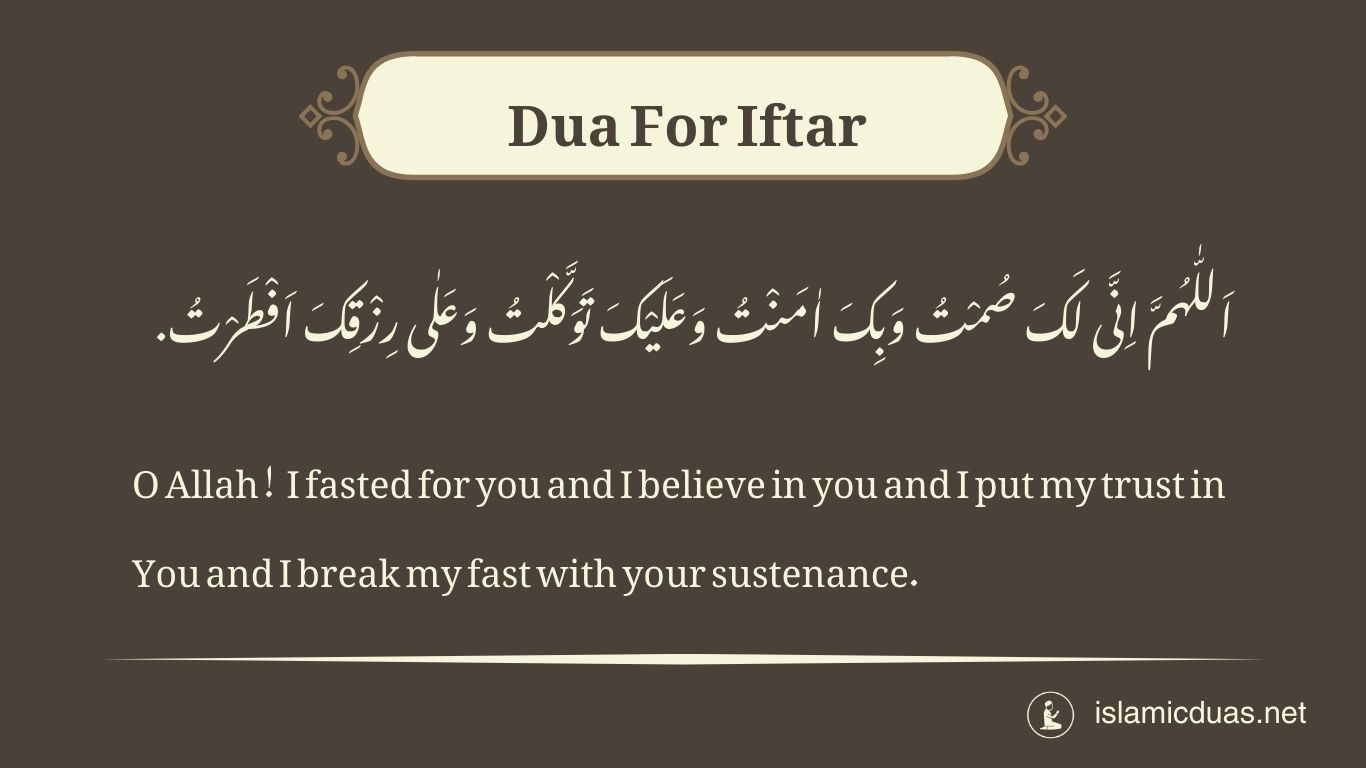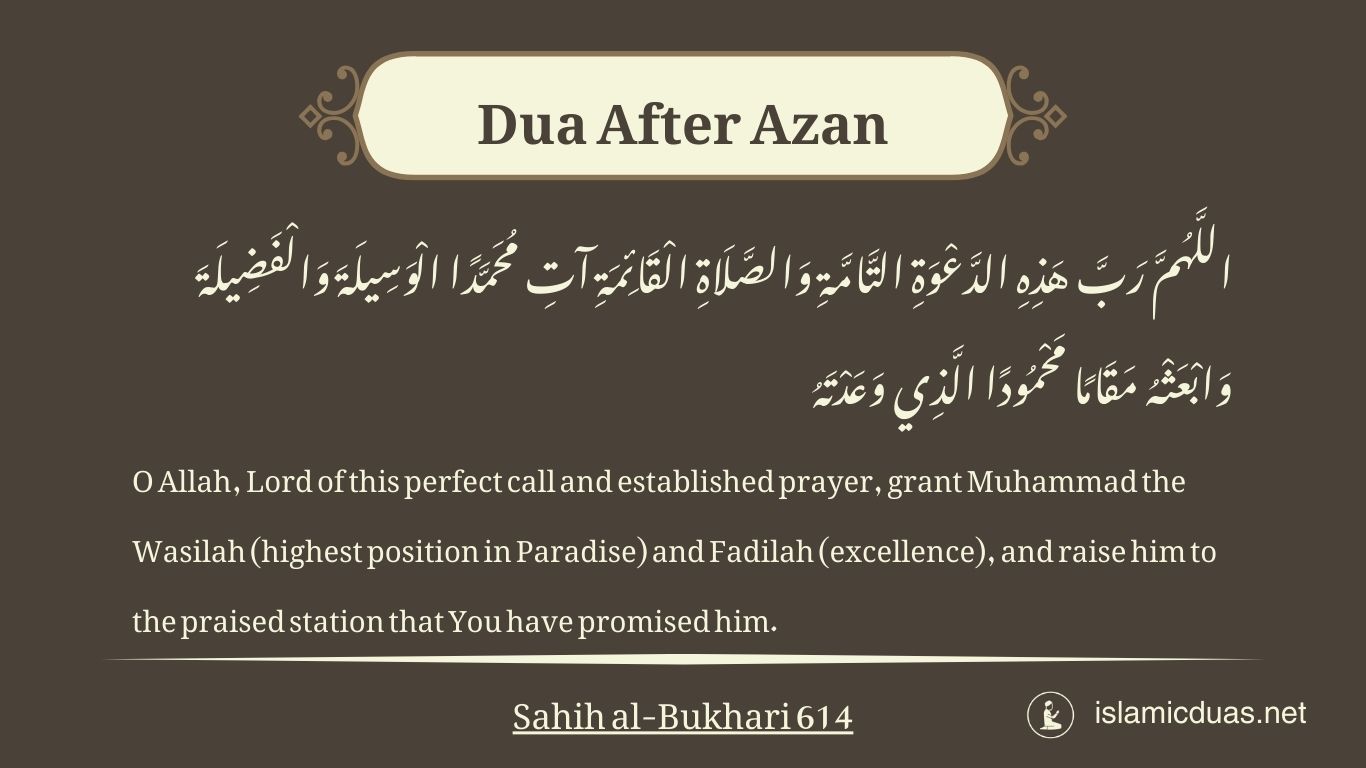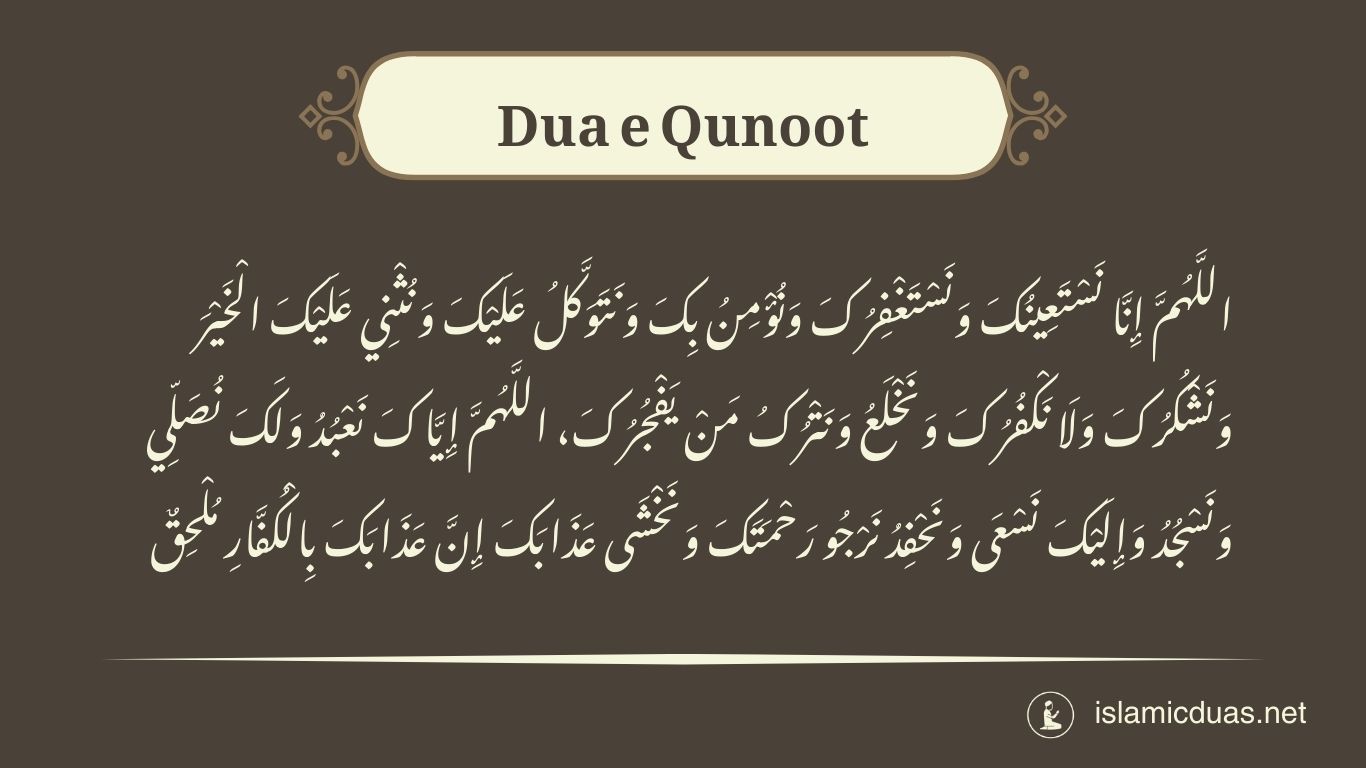اَللّٰهُمَّ اِنَّی لَکَ صُمْتُ وَبِکَ اٰمَنْتُ وَعَلَيْکَ تَوَکَّلْتُ وَعَلٰی رِزْقِکَ اَفْطَرْتُ.
English TranslationO Allah! I fasted for you and I believe in you and I put my trust in You and I break my fast with your sustenance.
Roman Translation
Allahumma inni laka sumtu, wa bika aamantu, wa ‘alaika tawakkaltu, wa ‘ala rizqika aftartu.
When, Where, and How Much to Recite:
- When: Recited immediately before breaking the fast (Iftar) at sunset.
- Where: Recited anywhere, such as at home, in the mosque, or during gatherings.
- How Much: Recited once.
Background:
- Purpose:
- To express gratitude to Allah for enabling one to complete the fast.
- To acknowledge Allah’s provision of sustenance.
- To seek Allah’s acceptance of the fast.
- Significance: Breaking the fast is a time of joy and gratitude, and this dua is a way to express those feelings.
Hadith / Quranic Reference:
- Hadith:
- While the exact wording may vary slightly in different narrations, the core meaning is consistent. The Prophet Muhammad (peace be upon him) encouraged making dua at the time of breaking the fast, as it is a time when duas are accepted.
- Sunan Abi Dawud 2358: It was narrated that Mu’adh bin Zuhrah said: “It reached me that when the Prophet (peace and blessings of Allah be upon him) broke his fast he said: ‘Allahumma laka sumtu wa ‘ala rizqika aftartu (O Allah, for You I have fasted and with Your provision I have broken my fast).’”
Quran:
- While there is no specific verse reciting this exact dua, the Quran encourages gratitude and remembrance of Allah in all situations.



